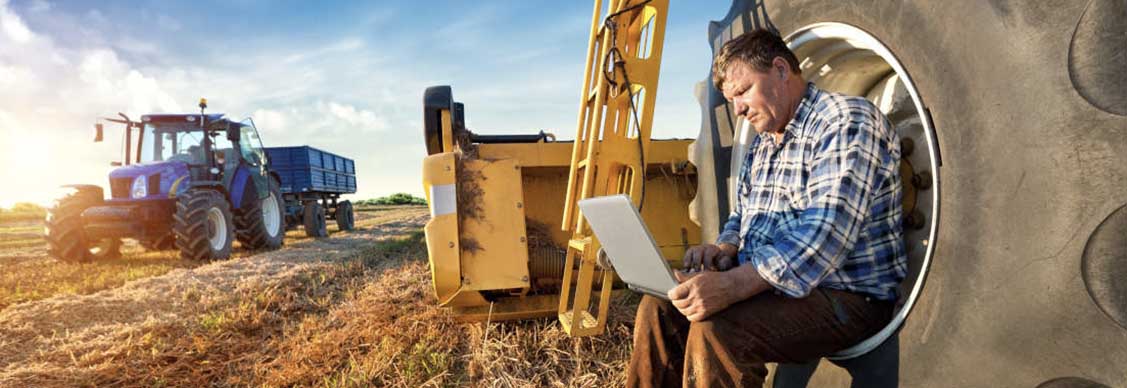How much is my farmland worth? Rural valuations explained
If you own rural land or you’re considering investing in it, understanding how it’s valued and the factors that influence its value is critical.
Whether it’s a single farm or large-scale agribusiness portfolio, familiarising yourself with the process involved in a rural valuation will help protect your investment and minimise future risk.
Ahead, we breakdown the ins and outs of a rural valuation, including what to expect when you engage the services of a registered valuer.
What’s involved in a standard rural valuation?
A rural valuation differs from a regular property valuation.
“First, we’ll sit down with the farmer to get a sense for how the operation works,” says Geoff Beaumont, Senior Registered Valuer at JLL New Zealand. “Being a part of that journey is the most rewarding part of rural valuation.”
Following this, an inspection is carried out, looking at everything from the condition of pastures to improvements and equipment.
“We then ascertain the market value on an average efficient basis - not highest performing,” explains Beaumont. As with any business, alternative management can yield vastly different results due to a number of variables, including access to capital, education, and inherent skills.
Looking for more insights? Never miss an update.
The latest news, insights and opportunities from global commercial real estate markets straight to your inbox.
“Valuing on an average efficient basis gives us a benchmark for its productive capacity while isolating specific management factors. Essentially, we’re calculating its value based on an average efficient manager coming in and operating it at an average efficient production level.” In dairy farming, for example, there are a number of production systems a farmer can operate by. “System 1 is low input with minimal external supplementation needed to feed the herd, whereas system 5 is high input, so feed input could be greater than 50%.”
After the inspection, the information acquired from the on-site visit is used to generate a high-quality, data-rich report.
How rural land is valued
The first stage in assigning value to farmland is to get acquainted with the local market. Thorough research of the land market will help to provide an indicative price range, although it’s just a starting point. When it comes to rural land, it’s not an apples-for-apples comparison, as every piece of farmland has unique traits that can affect its value.
A valuer will explore recent sales data, similar properties, demand-supply dynamics, and the historical price trends of rural land in the area. They will also note any improvements made and the potential uses of the property, as this can greatly influence its market value.
“We’ll use these insights to ask, if this property was listed for sale on the day of valuation, what market price is it likely to achieve?” explains Beaumont.
Investment Opportunities
Factors that affect rural property values
There are obvious factors that influence any property’s value, like location and land size, but there are also several site factors that influence rural land value specifically.
“Location is still a major value driver but in a rural sense, locational attributes are more detailed,” says Beaumont. “While we look at the property as a whole, the underlying land is equally important.”
Land classification, site topography, climate, annual rainfall, water availability, and soil type are among the many factors taken into consideration.
Below are a few examples of how these factors can influence the value of farmland.
- Climate
New Zealand is subject to varying climate conditions. The majority of farmers and growers in Canterbury access water for irrigation to mitigate limited rainfall. The altitude of the Canterbury Plains, being closer to the coast or higher up near the foothills, also affects growing conditions.
- Soil
In New Zealand, soil profiles are generally categorised by class, with class 1 and 2 soils most sought-after for horticulture. Heavier class 3 and 4 soils tend to have a lower value, although it doesn’t necessarily make the land undesirable. These soils have good water retention so could still be utilised for crops suited to dry farming.
Soil salinity, or the proneness to rising water levels, and soil erosion are characteristics a valuer will analyse while visiting your property.
- Water
“Water availability and how it’s sourced, such as bores or wells or via an irrigation scheme, are important in determining the value of a property,” adds Beaumont.
There is a variance in costs associated with water sourcing from region to region. “For example, irrigation schemes across Canterbury have different costs to access water, which has an effect on the cost of running the farming operation and therefore its profitability.”
- Compliance
In recent years there has been an influx of new regulations introduced, which may alter the current or future land use where owners are not compliant.
“A valuer will look into any relevant regulations and assess compliance,” Beaumont continues. “From government policies like Highly Productive Land and Essential Freshwater Package to local council requirements through the Canterbury Land and Water Regional Plan, and Intensive Winter Grazing Rules, these all add an extra layer to the valuation process.”
If you’re buying rural land, looking to improve or develop, or are planning for the future, JLL New Zealand’s specialist rural valuers can help. Our team provides specialised advice and valuations across a broad range of rural property and agribusinesses.
Contact Geoff Beaumont
Registered Valuer, Value and Risk AdvisoryWhat’s your investment ambition?
Uncover opportunities and capital sources all over the world and discover how we can help you achieve your investment goals.




